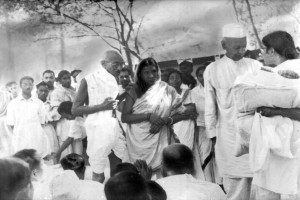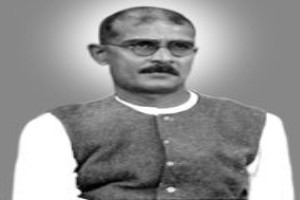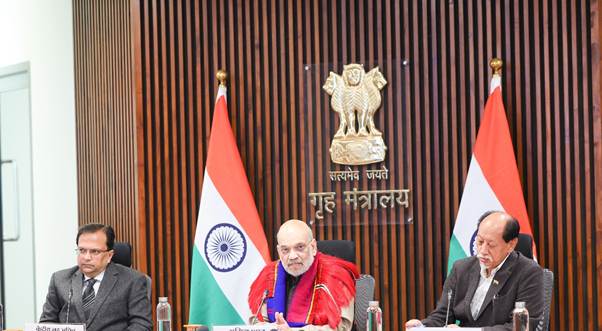
History Recalled
 By Mahadev Desai*
By Mahadev Desai*
An Expression of Love
I devoted a fair amount of space last week to the pen-portrait of the recluse friend who is now in our midst. I must continue the story. For it was no vain curiosity on the part of Gandhiji that prompted him to put those numerous questions to the recluse who had been silent for years and had broken the silence just for him. It was not curiosity but overflowing love, as we shall see.
Also read: History Recalled: The recluse revolutionary- Part 1
Gandhiji: As you sit in your meditation, are you troubled by extraneous thoughts?
(J.P) Bhansali: No, never.
G: Never during the day?
B: Not so. Whilst I am not engaged in my meditation, I think of the talks we are having, and I put your questions to myself again and again.
G: You do.Well, then, you said the other day that when you see all the surrounding misery you are considerably agitated. Don’t you feel like doing your little bit to lessen it?
B: No, though it may seem strange.
G: But, then what is the meaning of being agitated?
B: I feel the misery myself, but also feel that am powerless to do anything.
G: When a thorn pierces your foot, you pull it out, don’t you?
B: Yes.
G: When you feel hungry, you eat, don’t you?
B: I do.
G: Then if you find thorn piercing someone else’s foot, would you not help him to pull it out? If you find someone suffering from the pangs of hunger, would you not feed him?
B: I would, if I could.
G: If there was someone who was going through agonies and there was none but you to tend him, would you not sit down to do so?
B: I would, but I could not do much. I should confess my helplessness.
G: Surely, one like you would not shirk a responsibility so lightly?
The recluse smiled a winsome smile in reply.
G: But we started with the premise that the surrounding misery agitates you, and that, as you yourself said, you see the death dance in ever fiercer reality.
B: I do. But I declare my helplessness.
G: Only he who has exhausted all efforts may say that he can do nothing more. If he has a lame person to attend to, he will give him all the attention that he is capable of. This one act of service will mean the service of humanity.
B: But I could not exclusively devote my attention to relieving the misery of the distressed. I would do a little bit, but I should soon feel powerless.
G: The world is sustained by sacrifice and service. As the Gita says, ‘the Lord created the beings with the duty of sacrifice cast on them.’
B: I know. But are not meditation and worship too a sacred duty?
G: Meditation and worship are not exclusive things like jewels to be kept locked up in a strong box. They must be seen in every act of ours. But I will not press you for a reply today. I simply want to set you thinking about this. You know that you are always in my thoughts.
The next morning our friend, contrary to his wont, went to Gandhiji and said that he was very much distressed that he should be a source of worry to him, but he repeated that he was helpless.
“Not a bit of it,” replied Gandhiji. “I felt I must share my feelings with you, and so I asked you those questions.”
“Please don’t think of giving me up.”
“I will not think of giving you up. But I want you to do nothing that does not appeal to you. At the same time let me also plead with you. However, I am sure that, whether you are in a cave or working in the midst of multitudes, all is well with you.”
The talk was continued the next evening.
G: Though you have told me that all that I have said does not alter your conviction, you will please let me harp on the same subject a little while longer.
B: You have every right, Bapu. Only I thought I might tell you how my mind was working.
G: Of course I know your mind. But knowing your mind, how is it that I do not feel like copying your example? Of course I should love to trudge about like you from one end of the country to the other, and, if my body allowed it, I should like to live on uncooked flour and neem leaves. But I find there is a serious flaw in your way of life. As a seeker after truth, if I find that yours is the true way, it would be my duty to adopt it. On the other hand, if I feel that there is some serious error in it, it is my duty to draw your attention to it. As I have told you I have no quarrel with your flour or with your neem leaves. What I cannot understand is that you should ignore a vital condition of our very existence. I mean the principle of sacrifice with which we are born.
B: I should like you to make this a little clearer.
G: You know that the Gita says that he who eats without offering the daily sacrifice steals his food. To beg one’s food is a good thing, but only after one has offered one’s sacrifice.
B: I have heard it. I was pondering the whole day over what you said the other day. I wondered if I had any right to eat my flour and neem leaves, as I did no work.
G: Yes, you have heard it. But the world accepts the principle and acts up to it, e.g. Jain Munis and Sanyasis. They live on alms, but they do so because they persuade themselves that they are offering sufficient sacrifice in the shape of the teaching they impart. Here they are somewhat mistaken, as I think. It is their duty to impart spiritual teaching, but all the same they must offer some sacrifice in the shape of bread-labour, and rather than expect their food as a reward of their sacrifice, they should, like true Brahmins, live on the charity of the people. All, therefore, that I have to tell you again and again is that you must shake yourself of this illusion. To do no work is no renunciation. It is inertia. What I have written has universal experience in support of it, and my own life is an eloquent witness to it. You interrupted your wanderings and came here out of love for me. God sent you here. How best am I to requite your love? Not by treating you to good food. You would not care to have it, I would not care to give it. But I must pour out to you what the purest love bids the heart to do.
B: I am deeply thankful. I must go over all that you have said.
There was one more talk on the subject, which for the moment may be regarded as final.
G: Well, have you thought over what I said?
B: I have, but, I confess, to no effect. The fact is that for ten years my views have run along this line. Even when I was in England, I said to myself I should adopt sanyasa on my return and, if anything, the years that have elapsed have strengthened the old conviction.
G: I know the conviction has been long with you.
B: Yes, and I have not yet found any reason to alter it. Pray pardon me, if I am rude.
G: There is no question of rudeness. If plain-speaking were rudeness, I am simply saturated with it. No, I am glad you are speaking to me your mind quite frankly. But there I will leave you. I do not want to tax you any further.
To continue…
*Mahadev Desai was an eminent freedom fighter and Mahatma Gandhi’s personal secretary; article courtesy his grandson, Nachiketa Desai.





